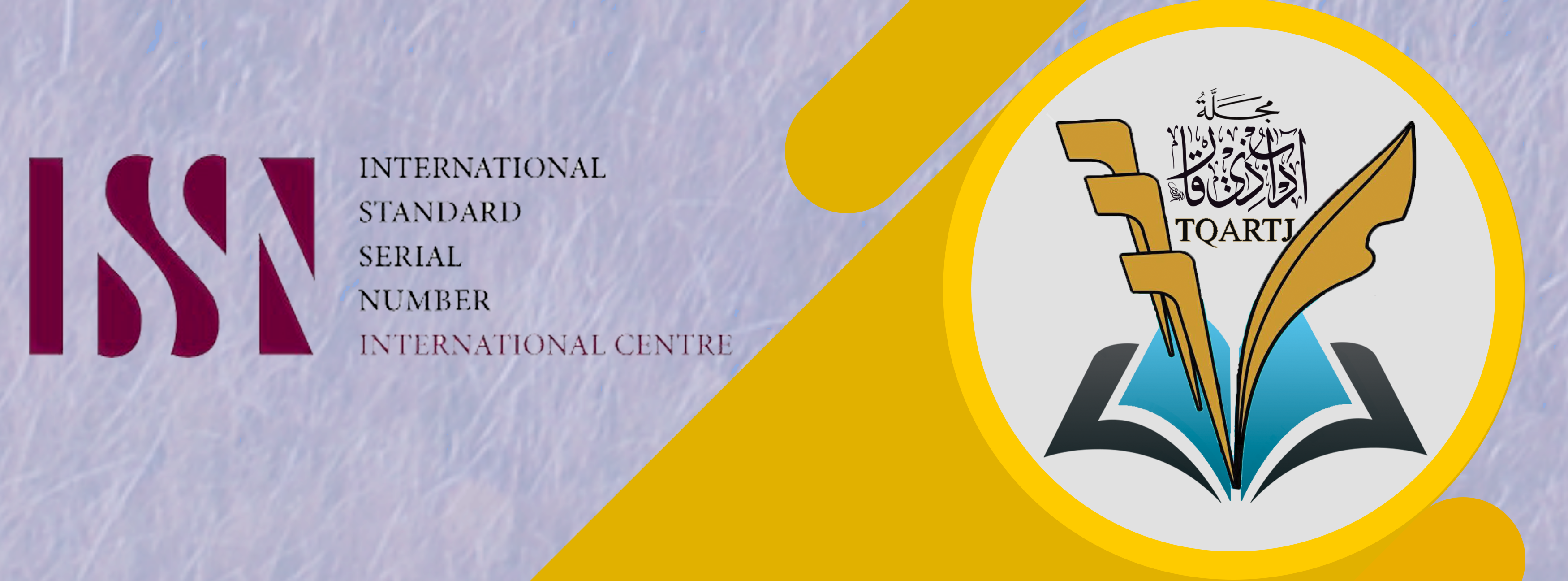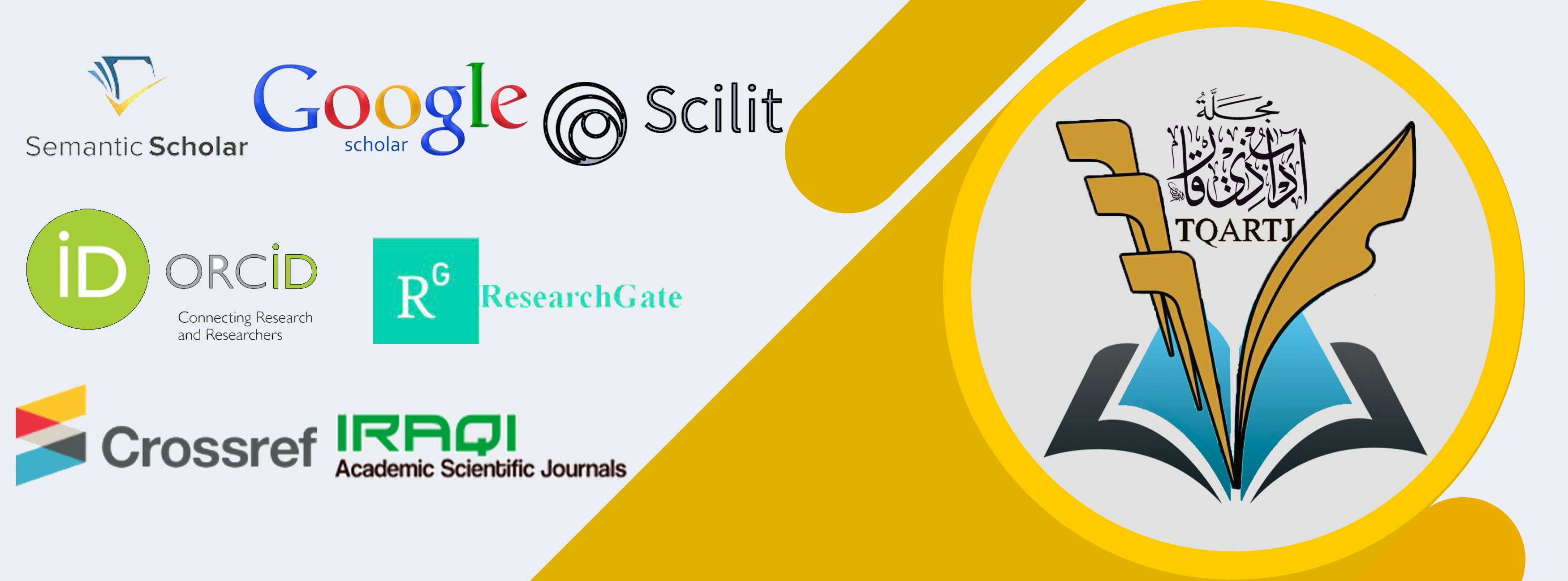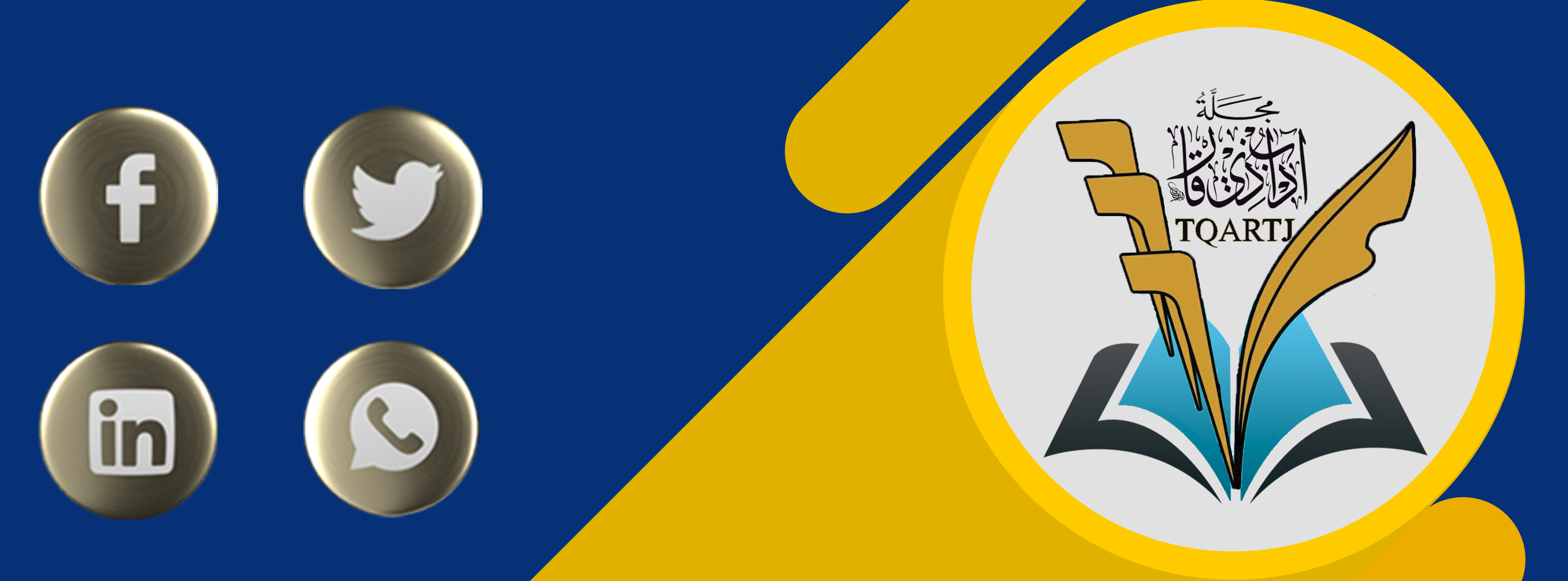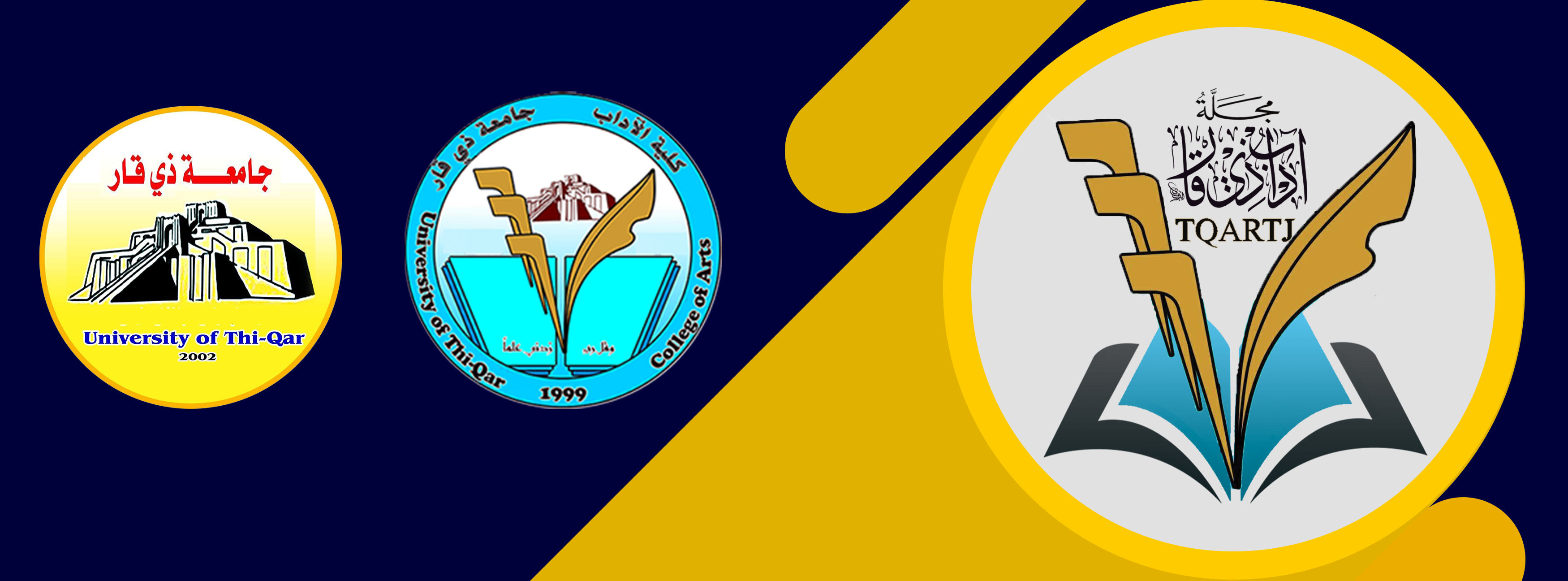مفردة لفظ الجلالة (الله) بين الراغب الاصفهاني (502 هـ) والسبزواري (1414 هـ) دراسة دلالية في المفردة القرانية
DOI:
https://doi.org/10.32792/tqartj.v1i41.389الكلمات المفتاحية:
لفظ الجلالة ، صفات الكمال ، الاشتقاق والجمود، والخصوصالملخص
إنَّ مفردة لفظ الجلالة (الله), من الأسماء الأكثر شيوعًا بين الأمم على اختلاف أديانهم واعتقاداتهم وأزمانهم, وقد شغل فكر بعض الباحثين تساؤلهم في أصل هذا الاسم المبارك, أهو عربي أم غير عربي؟ فقيل: إنَّه غير عربي, وللقائلين بذلك أدلَّتهم, وقيل: إنَّه عربي لانعدام الدَّليل على ما ذكر من التعريب. والحقيقة أنَّ معناه قد استعمل قديمًا وحديثًا بألفاظ تتناسب مع كل لغة من اللغات, فالكنعانيون كانوا يسمونه (إيل) ومنه قول: جبرائيل بمعنى ملاك الله, وإسرائيل بمعنى عبد الله. والفرس:(خدا, وإيزد), واليهود:(نيل, والوهم, وإله), والبوذيون يسمُّونه: (أوم). والإنكَليز: (Cod), والفرنسيون: (Dieu), والألمان: (Cott).
وممَّا يدلُّ على كونه علمًا أنَّه يوصف بجميع الأسماء الحسنى وسائر أفعاله المأخوذة من تلك الأسماء من غير عكس... وصحَّ ما قيل إنَّ لفظ الجلالة اسم للذات الواجب الوجود المستجمع لجميع صفات الكمال وإلَّا فهو علم بالغلبة لم تعمل فيه عناية غير ما يدل عليه مادة أله. فهو أجلُّ لفظٍ في الممكنات كلِّها, لأعظمِ معنى في الموجودات جميعِها.
ولفظ الجلالة (الله) اسم غير مشتق, فلا يجوز حذف الألفِ واللام منه؛ لأنَّه من الأسماء المبنيَّة على أربعة أحرف أصليَّة. وأمَّا استعمال اللَّهُمَّ في النداء، فأصله (يا الله), والميم المشدَّدة عوض عن حرف النداء (يا), ولا يجتمعان إلَّا شاذًّا, وهذا الرأي هو الأرجح عند العلماء.
التنزيلات
المراجع
1. The Holy Quran.
2. The Greatest Name or Knowledge of the Basmala and Hamdala, Muhammad Al-Gharawi, Al-Alamy Publications Foundation, Beirut - Lebanon, 1st edition, 1982 AD.
3. The Known Names and Attributes of God: Names and Attributes, Imam Al-Hafiz Abi Bakr Ahmed Bin Al-Hussein Al-Bayhaqi (d. 458 AH), investigation by Muhammad Mohib Al-Din Abu Zaid, presented by Dr. Omar Bin Abdul-Aziz Qureshi, Islamic Awareness Library, Dar Al-Shuhada, Egypt, Special Edition, 2015 AD .
4. Names and Attributes, by Abu Mansour Abd al-Qadir bin Taher al-Baghdadi al-Ash’ari al-Shafi’i (d. 429 AH), an honor to serve him, Anas Muhammad Adnan al-Sharfawi, Dar al-Taqwa, Damascus, Damascus, 1st edition, 2020 AD.
5. The Fundamentals of Al-Kafi, by Abu Jaafar Muhammad bin Yaqoub bin Ishaq al-Kulaini al-Razi (d. 329 AH). Islamic Book House, Tehran, 8th edition.
6. Equity in matters of disagreement between the two grammarians: the Basrans and the Kufis, by Kamal al-Din Abi al-Barakat Abd al-Rahman bin Muhammad bin Abi Saeed, al-Anbari the grammarian, and with him the book al-Intisaf min al-Insaf, Muhammad Muhiy al-Din Abd al-Hamid, Dar al-Tala’i - Cairo, 2009 AD.
7. Investigating the words of the Noble Qur’an, Allama Al-Mustafawi, Dar Al-Kutub Al-Ilmiya, Beirut - Lebanon, 6th edition, 1442 AH - 2020 AD.
8. Interpretation of the Most Beautiful Names of God, by Abu Ishaq Ibrahim bin Al-Sari Al-Zajjaj (d. 311 AH), The Forum of Ahl Al-Athar, investigation by Ahmed Yusuf Al-Daqqaq, Dar Al-Ma’moun for Heritage, Damascus, Beirut, 2nd edition, 1979 AD.
9. The Diwan of Imru’ al-Qais, investigation by Muhammad Abu al-Fadl Ibrahim, 4th edition, Dar al-Ma’arif, Cairo.
10. Al-Radi’s Explanation of Al-Kafiyyah, Youssef Hassan Omar, Qan Younis University, Benghazi, 2nd edition, 1996 AD.
11. An Explanation of Poetic Evidence in the Masters of Grammatical Books, Muhammad Muhammad Hassan Shurrab, Al-Risala Foundation, Beirut, 1st edition, 2007 AD.
12. The book Al-Ain arranged according to the letters of the dictionary, Al-Khalil bin Ahmed Al-Farahidi (d. 170 AH), arranged and verified by Dr. Abdel Hamid Hindawi, Dar Al-Kutub Al-Alamiyyah, Beirut - Lebanon, 1st edition, 2003 AD.
13. The Book of Sibawayh, by Abu Bishr Amr bin Othman bin Qanbar, Abd al-Salam Muhammad Harun, Al-Khanji Library in Cairo, 4th edition, 2004 AD.
14. Majma’ al-Bayan fi Tafsir al-Qur’an, by Abu Ali al-Fadl al-Hasan al-Tabarsi (548 AH), Al-Alamy Publications Foundation, Beirut, Lebanon, 2nd edition, 2005 AD.
15. The brief editor in the interpretation of the dear book, by Abu Muhammad Abd al-Haq bin Ghalib al-Andalusi (d. 546 AH), Muhammad Ali Beydoun, Dar al-Kutub al-‘Alamiyyah, Beirut - Lebanon, 1st edition, 2001 AD.
16. The indexed dictionary of the words of the Holy Qur’an, Muhammad Fouad Abdel-Baqi, Dar Al-Hadith - Cairo, 1364 AH-1945 AD.
17. Concepts of the Qur’an, Jaafar Al-Sobhani, Foundation for Arab History, Beirut - Lebanon, 1st edition, 2010 AD.
18. Vocabulary in Gharib Al-Qur’an, by Abi Al-Qasim Al-Hussein Bin Muhammad, known as Al-Ragheb Al-Isfahani (d. 502 AH), Ibrahim Shams Al-Din, Al-Alamy Publications Foundation, Beirut- Lebanon, 1st edition, 2009 AD.
19. Al-Muqtadab, by Abu al-Abbas Muhammad ibn Yazid al-Mubarrad (d. 285 AH), Muhammad Abd al-Khaliq Azimah, The World of Books, Beirut - Lebanon, 2010 AD.
20. The talents of the Most Gracious in the interpretation of the Qur’an, Abd al-Ala al-Musawi al-Sabzwari (d. 1414 AH), Dar al-Kafeel, Holy Karbala - Iraq, 5th edition, 2018 AD.
21. Encyclopedia of the Most Beautiful Names of God, Hussein Najeeb Muhammad, Dar Al-Mahjah Al-Bayda, Beirut - Lebanon, 1st edition, 2009 AD.
22. The Balance in the Interpretation of the Qur’an, Muhammad Hussein Al-Tabatabai, investigation by Sheikh Ayad Baqer Salman, presented by Kamal Al-Haidari, Dar Revival of Arab Heritage, Beirut - Lebanon, 1st edition, 2006 AD.
التنزيلات
منشور
إصدار
القسم
الرخصة
الحقوق الفكرية (c) 2023 ا.د اياد محمد علي ، م.م طالب حمد جكي

هذا العمل مرخص بموجب Creative Commons Attribution 4.0 International License.
تطبق المجلة رخصة المشاع الابداعي (a Creative Commons Attribution 4.0 International) . تسمح هذه الرخصة للمؤلفين بالاحتفاظ بحقوق النشر لأوراقهم. ولكن هذه الرخصة تسمح لأي مستخدم بتحميل، طباعة، استخراج، إعادة استخدام، أرشفة، وتوزيع المقال، طالما يتم إعطاء الائتمان المناسب للمؤلفين ومصدر العمل. تضمن الرخصة أن يكون المقال متاحًا على نطاق واسع قدر الإمكان وتضمين المقال في أي أرشيف علمي.


















